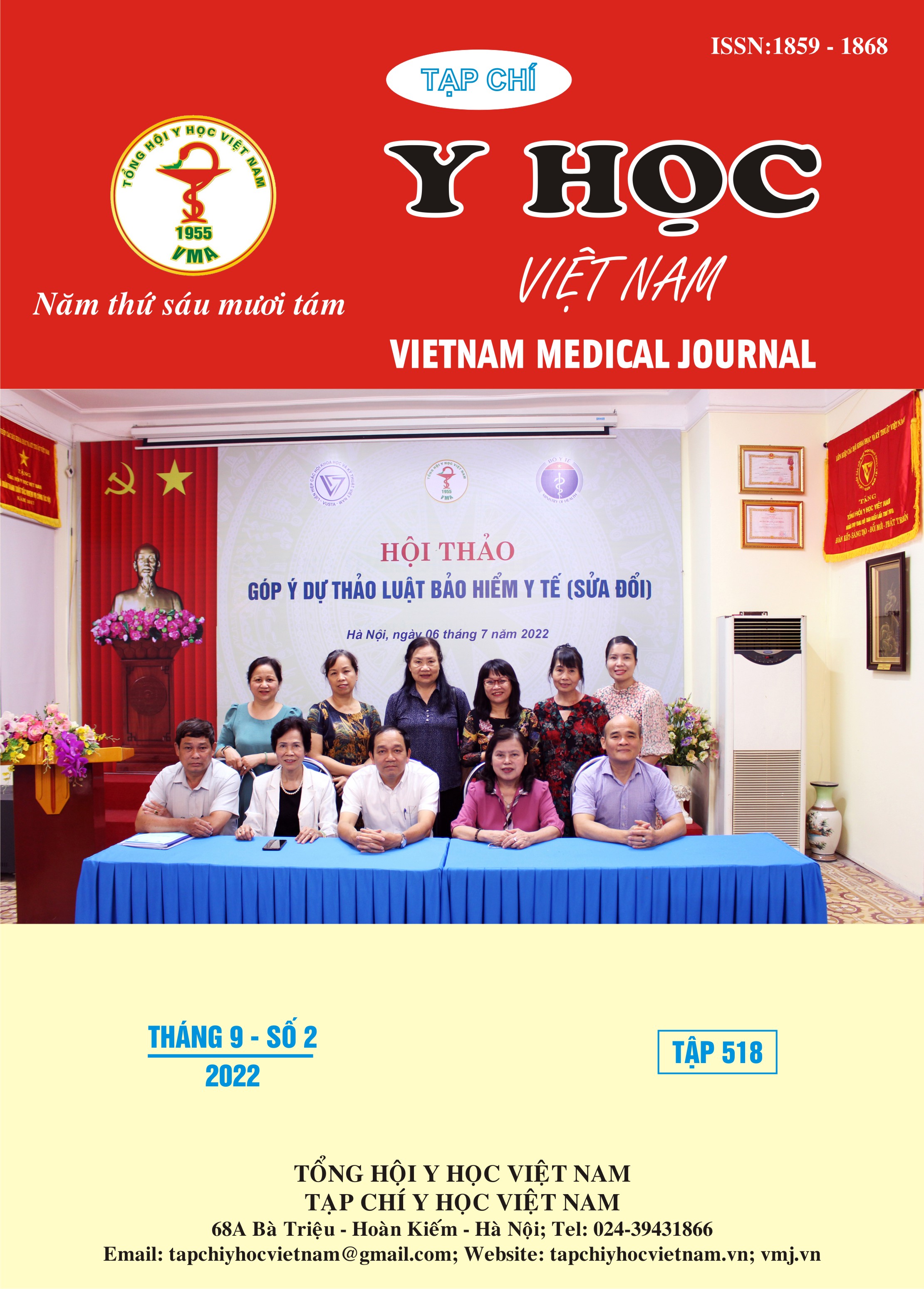CLINICAL FEATURES ANTI-NMDA RECEPTOR ENCEPHALITIS
Main Article Content
Abstract
Objective: Determine the clinical characteristics Anti-NMDA receptor encephalitis. Subjects: We selected 36 patients were diagnosed Anti-NMDA receptor encephalitis at Bach Mai Hospital during January 2019 to October 2022. Methods: Cross-sectional descriptive study. Results: Thirty-six patients with anti-NMDAR encephalitis were enrolled (age from 14 years to 64 years old) median age: 30.7 ± 13.7 years, with a female predominance (63.9%). Patients admitted to the hospital with the most common reason was mental disorder (50%). Nineteen patients had onset of psychiatric symptoms (52.8%). In the group of psychiatric symptoms, twenty-two patients (61.1%) with bizarre behavior and disorganized thinking, in addition, delusion, cognitive disorders, progressive speech deterioration of language were also reported, often appear with the corresponding rate of 58.3%, 55.6%, 58.3%. In the group of neurological symptoms, Thirty patients (83.3%) with a decreased level of consciousness, 21 (58.3%) with seizures, 21 (58.3%) with sleep disturbances and 8 (22.2%) with autonomic instability. Conclusion: In summary, in the study of clinical features of NMDA encephalitis, we found that NMDA encephalitis is a common autoimmune encephalitis in young women, with the onset and predominant clinical symptoms being psychiatric disorders. This makes early diagnosis very difficult and delays treatment for patients.
Article Details
Keywords
Autoimmune Encephalitis, Anti N-methyl-D-Aspartate receptor, NMDA
References
2. Dalmau J, Graus F. Antibody-Mediated Encephalitis. N Engl J Med. Mar 1 2018; 378(9):840-851. doi:10.1056/NEJMra1708712
3. Titulaer MJ, McCracken L, Gabilondo I, et al. Treatment and prognostic factors for long-term outcome in patients with anti-NMDA receptor encephalitis: an observational cohort study. The Lancet Neurology. 2013;12(2):157-165. doi:10.1016/s1474-4422(12)70310-1
4. Sarkis RA, Coffey MJ, Cooper JJ, Hassan I, Lennox B. Anti-N-Methyl-D-Aspartate Receptor Encephalitis: A Review of Psychiatric Phenotypes and Management Considerations: A Report of the American Neuropsychiatric Association Committee on Research. J Neuropsychiatry Clin Neurosci. Spring 2019;31(2):137-142. doi:10.1176/appi.neuropsych.18010005
5. Wang Y, Zhang W, Yin J, et al. Anti-N-methyl-d-aspartate receptor encephalitis in children of Central South China: Clinical features, treatment, influencing factors, and outcomes. J Neuroimmunol. Nov 15 2017;312:59-65. doi:10.1016/j.jneuroim.2017.09.005


